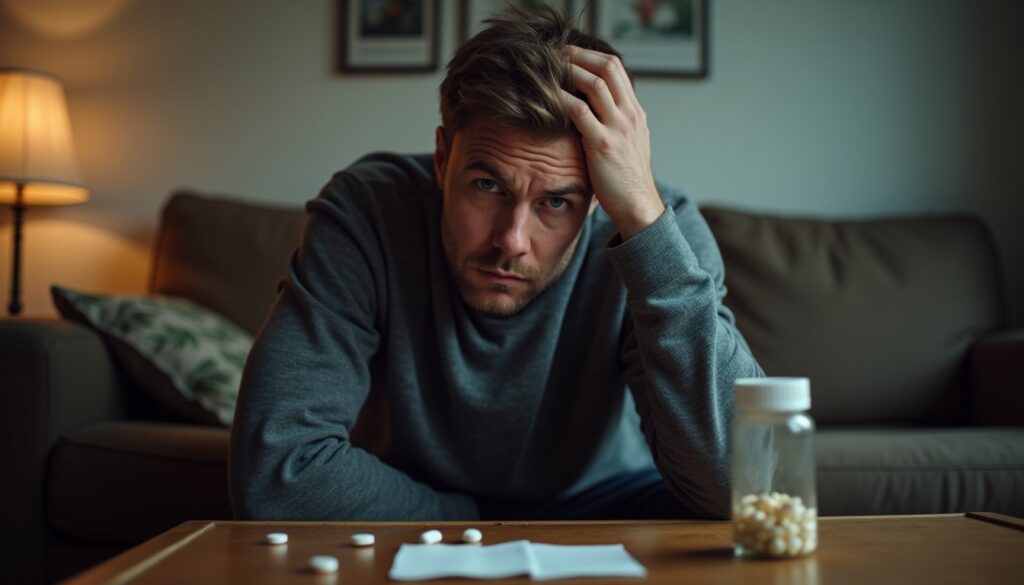Recovering from addiction and continuously encountering relapse has achieved acceptance as an almost unavoidable part of the rehabilitation process. However, contrary to popular beliefs, relapse is not a normal part of recovery, and normalizing it can be dangerous, discrediting the urgency to prevent them.
Preventing relapse is fundamental in drug and alcohol recovery. Treatment aims to help you recognize the early warning signs and to gain coping skills to avoid it in its most early stage when the probability of success is more likely.
The Stages of Relapse
The formula for relapse prevention is to understand it is a gradual process, not an event. This allows individuals to recognize signs and symptoms of relapse and then establish preventative measures for each stage.

Stage 1: Emotional Relapse
During the first stage of relapse, an individual is not thinking about using and not planning on relapsing. Their refusal to believe they may be at risk creates denial.
Denial is the most significant part of emotional relapse because it can prevent practical approaches to avoid the progression of a relapse.
One of addiction treatment’s main goals is to help individuals acknowledge and overcome denial to understand the importance of spotting the first stage, avoiding progression through the rest of the stages.
Signs of emotional relapse include:
- Bottling up emotions
- Isolation
- Not going or sharing in support group meetings
- Focusing on others and their problems
- Unhealthy sleeping and eating habits
The common factor of this stage is poor self care. The definition of caring for yourself extends to mental, emotional, and physical self care.
Self care includes making time for yourself, being kind to yourself, and learning to let yourself enjoy life, focusing on your mental and physical health.
These questions frequently get asked in therapy and could be something you may want to ask yourself and revisit often:
- Are you starting to feel drained?
- Do you feel you are good to yourself?
- How are you having fun?
- Are you setting aside time for yourself?
- Are you getting caught up and overwhelmed in life?
A large part of self care is practicing stress management. Research shows physical activity can result in reduced stress levels and promote the facilitation of other healthier lifestyle habits.
It is helpful to compare your current behavior to your past relapses to judge whether your self care practices are getting better or worsening. When you continuously neglect self care, the transition from the first stage into the next is almost guaranteed.

Stage 2: Mental Relapse
In mental relapse, an internal battle exists inside an individual’s mind between wanting to use and the desire to stay sober. When someone is falling deep into this stage, their need for escape amplifies.
Some signs of mental relapse involve:
- Craving for drugs or alcohol
- Thinking about the people, places, and things connected to past use
- Rationalizing consequences of past use or glorifying past use
- Lying
- Thinking of ways to use more responsibly
- Looking for a reason or opportunity to relapse
- Planning a relapse
Situations during this stage that increase the likelihood of relapses, such as vacations, holidays, and social events, are often used as an excuse to justify using again. This is called mental bargaining. Another form of it is when someone thinks they can relapse systematically, in a more controlled manner, for instance, only on special trips or once or twice a year.
Some people in early recovery tend to have unreasonable assumptions like believing that they will never think about using or facing a relapse. However, substance abuse treatment emphasizes that random cravings and thoughts of using are an ordinary occurrence in and after recovery and equips you with the skills needed to deal with and conquer these urges long term.
Though, occasional thoughts of using are different from a mental relapse. Hazards arise when these thoughts become more intense and increase in frequency. A person can’t erase the memory of their addiction, but with the right help, a person can get rid of their thoughts of using.
Stage 3: Physical Relapse
The final stage is when an individual starts using again. However, some researchers have identified a distinction between lapse, the initial use, and relapse, a return to uncontrolled using. But, differentiating the two is dangerous, minimizing the severity of using again and, more noteworthy, leading to a mental relapse of unrestrained thinking of further use, which eventually results in physical relapse.
Typically, this stage happens when there is an opportunity that the individual thinks their substance use will go unnoticed. During recovery, an individual will practice the skills necessary to recognize these high-risk situations and develop healthy ways to exit or avoid them.
Preventing relapse is not simply saying no before using. That is the final stage and the most challenging stage to stop it from happening.

What to Do if You Have Relapsed
The negative emotions and thinking that reinforces addiction is frequently harsh, judgmental thinking that blocks positive thoughts and negatively self-labels, leading to anxiety, depression, resentment, and stress.
At Northridge Addiction Treatment Center, the behavioral health therapies aim to challenge residents’ negative thinking and develop healthy coping mechanisms. The effectiveness of the offered treatment programs is evidence-based and backed by medical research.
Individuals in recovery tend to be unusually hard on themselves, seeing setbacks as enormous failures. However, setbacks are not an unusual part of progress. We know a relapse can be disheartening, but there is always a way back to sobriety and recovery.
Call NATC to create a specialized, holistic treatment plan that addresses mental health such as repressed trauma to find the underlying cause of you or a loved one’s addiction.
The path to recovery might seem like a long journey, but we’re here for you every step of the way.




